Table of Contents
Canaries are the small, endearing birds that love to sing, interact with people, fly around and play. They are the perfect beginner bird for those who want to embark on the journey of being bird enthusiasts, for they are also relatively easy to raise and maintain. This feeding guide is helpful for those who have just a few to zero knowledge about the adorable canaries.
Canaries Diet: What to Expect
Canaries are considered to be granivores. They are big seeds and wheat eaters. In the wild, they feast on these, with added insects, berries, small fruits which they take directly from the plant and they appear to be the healthiest in this practice. Therefore, a balanced diet, a majority that makes up for seeds and pellets, and fruits and vegetables are vital for a canary that is at its peak optimum health and is able to do things and activities with great energy level and flow.
Tips on how to find the right seeds and pellets
Seeds
Choose seed mixes that are high quality and organic, with no added preservatives, artificial colors, and flavoring. Nowadays, there exist seed mixes that are formulated with vitamins, minerals, and antioxidants, lean towards these kinds. It is important to buy reasonably priced seed mixes, rather than cheap ones, to ensure that your bird can receive nutritional benefits.
Pellets
Choose pellets that are made of high quality and organic, with no added chemical preservatives, artificial colors, and flavoring as well. Choose those that are formulated with a great number of vitamins, minerals, antioxidants as well as amino acids that aids in bird health. In addition to that, there exist pellets with probiotics, as well as high fatty acids, lean towards them. It is important that it does not contain any sugar.
Seeds and pellets will make up 70% of their diet. It is important that it is in the best quality and highly nutritious to aid in their optimum health. To give them highly needed energy and strength to get through their day, and to overall just increase the quality of their lives in captivity.
Fruits and Vegetables
Making up 30% of their diet, fruits and vegetables hold a lot of nutritional benefits that make them essential. In addition to that, these two provide variation, spice things up, and generally, canaries, even still in the wild, love to feast on these.
List of fruits that should be present in canary’s diet:
- Apples
- Cantaloupe
- Oranges
- Watermelon
- Pears
- Berries
- Peaches
- Banana
- Grapes
List of vegetables that should be present in canary’s diet:
- Green beans
- Corn
- Cauliflower
- Cabbage
- Carrots
- Cucumber
- Pumpkin
- Kale
- Spinach
- Sweet potato
Supplements for Canaries
Supplements help in the canary’s overall health. They are packed with healthful vitamins, minerals, and antioxidants that will help aid especially if your canaries are stressed due to weather transitioning or if your canaries are experiencing big changes in their lives, such as when they are laying eggs to help cope and to regulate and ensure their health. Veterinary consultation is encouraged with regard to this matter.
Essential Reminders for Feeding
They should have a fixed schedule every day, for their meal time.
They needed to be fed twice a day, one in the morning and one in the late afternoon. Assign a specific time and abide by this every day. Fixed schedule accounts for certainty, and having a fixed schedule makes your bird feel safe, secure, and calm.
The right amount of food is a tablespoon of seeds and or pellets, and one or two small cut pieces of fruits, and one or two small cut pieces of vegetables. This is ideal and encouraged to abide by the whole day.
Fruits and vegetables if not finished should be removed after one hour.
Freshwater for hydration should always be available every single day. Sudden dietary changes can cause digestive problems. If you want to change brands of seeds/pellets, you would want to gradually introduce the new product for them to adapt and be comfortable with it, rather than forcing them to like it firsthand.
Feeding them treats is a great bonding experience with the two of you and is a great enrichment tool. Treats should make up less than 10% of your bird’s daily diet. You can use fruits, vegetables, treat nuggets, seed bells as well as honey sticks for treats.
Scattering treats will encourage them to unleash their natural foraging behavior.
Once a week, you should opt for giving them protein supplements, such as cooked eggs or a cuttlebone. Cuttlebone also helps in aiding digestion. Their feeding equipment should be sanitized every day, to ensure cleanliness and safety of use.
There exist foods that should never be fed for canaries, for they can cause adverse health disruption and even fatality. These are:
- Lettuce
- Avocado
- Mushrooms
- Tomato leaves
- Fruit seeds
- Alcohol
- Caffeine
- Chocolate
- Salt
Conclusion
Feeding your canaries well will account for a great, lively, and overall healthy lifestyle, and a great life that is capable of doing the things they love. Foods are fuel, for your birds to show up best for themselves and for their owners. Feeding is just one component of raising them, but it is the most important one since their health is at stake in it, therefore it is really crucial that you are feeding them effectively.

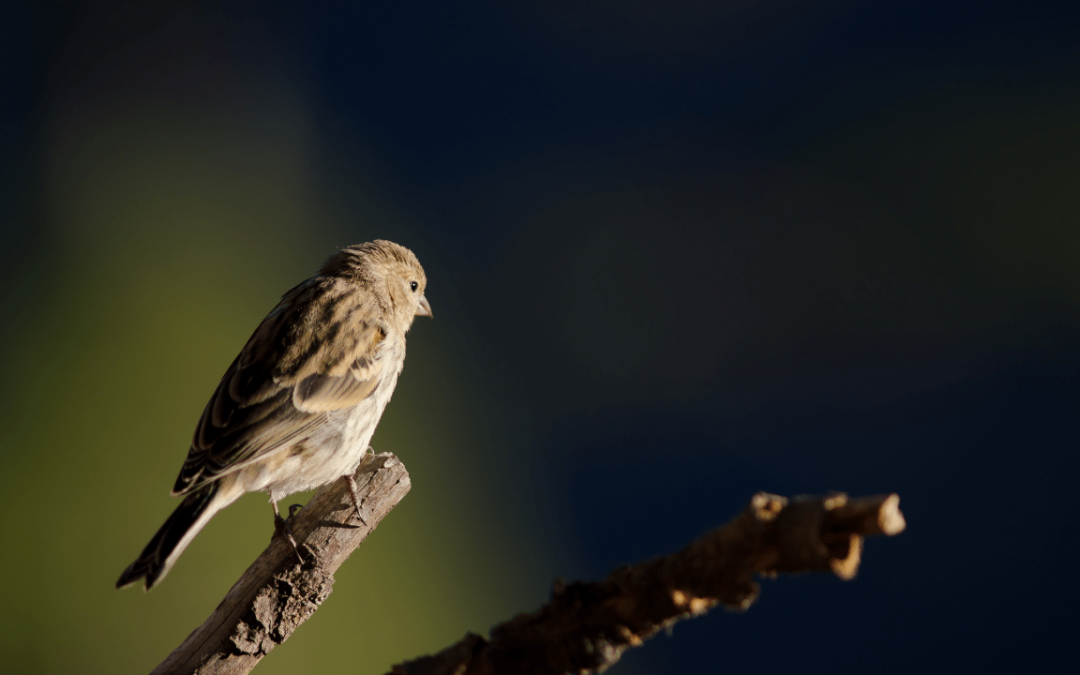
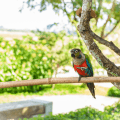
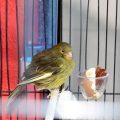
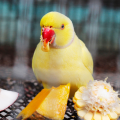
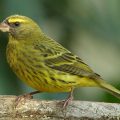
 Author and long-time animal lover. Sharing knowledge on pet care through experience and the written word.
Author and long-time animal lover. Sharing knowledge on pet care through experience and the written word.